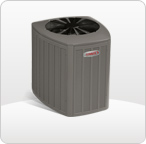 Last week we talked about ways Atlanta homeowners can get their plumbing systems ready for fall and winter, so today we thought we’d give you some insight into furnace maintenance and repair and why it’s so important. As the weather becomes colder, your furnace will take the lead in powering your home’s heating, so it’s crucial to ensure that everything is working properly so you can head off serious problems before they occur.
Last week we talked about ways Atlanta homeowners can get their plumbing systems ready for fall and winter, so today we thought we’d give you some insight into furnace maintenance and repair and why it’s so important. As the weather becomes colder, your furnace will take the lead in powering your home’s heating, so it’s crucial to ensure that everything is working properly so you can head off serious problems before they occur.
If it’s been a while since you last had your furnace serviced by R.S. Andrews, the best piece of advice we can give you is to call today and schedule a tune-up – a comprehensive furnace tune-up is just $79 until October 31st, so don’t wait!
Getting your furnace serviced by the pros at R.S. Andrews will not only ensure that your system is running at peak efficiency during the heating season but will also help you avoid some of the most common problems with your furnace, some of which can have catastrophic consequences if left untreated.
There are three main problems heating professionals encounter when servicing furnaces:
Dirty Flame Sensor
The flame sensor is a device, usually a thin, bent metallic rod, that sits in front of one of the flames that blows into your heat exchanger when the furnace is running. The purpose of the flame sensor is to tell the system that fire is present and prevent gas from being continuously released when no flame is present to ignite it. Carbon can build up the flame sensor over time, eventually rendering it unable to detect the flame, at which point you’ll be unable to start your furnace properly. This is an easy fix, but very important.
Broken Hot Surface Igniter
In most newer furnace systems, pilot lights have been replaced by hot surface igniters as the point of ignition for gas entering the system. Hot surface igniters work by heating up at the “request” of your thermostat for more heat to the point that they can ignite the gas. If your surface igniter is broken, your furnace simply won’t start, and you won’t have heat, so this is a must-fix issue.
Cracked Heat Exchanger(s)
If your heat exchanger is cracked or damaged, carbon monoxide is probably leaking into your duct system instead of being safely released into the atmosphere, possibly posing a danger to your household. Cracked heat exchangers can be repaired, but it’s often cheaper to simply replace them. An R.S. Andrews heating technician can advise you on the best approach if your heat exchanger is found to be cracked.
These are the three biggest repairs that we encounter when servicing customers’ furnaces prior to the heating season. Getting these and any other outstanding issues you may have with your furnace taken care of now will save you a lot of trouble and money this winter – and save you from being caught without heat when it’s freezing outside. Call R.S. Andrews today to ask about scheduling a pre-heating season checkup for your furnace, and don’t forget to check out all the great money-saving offers and financing options we have available.
